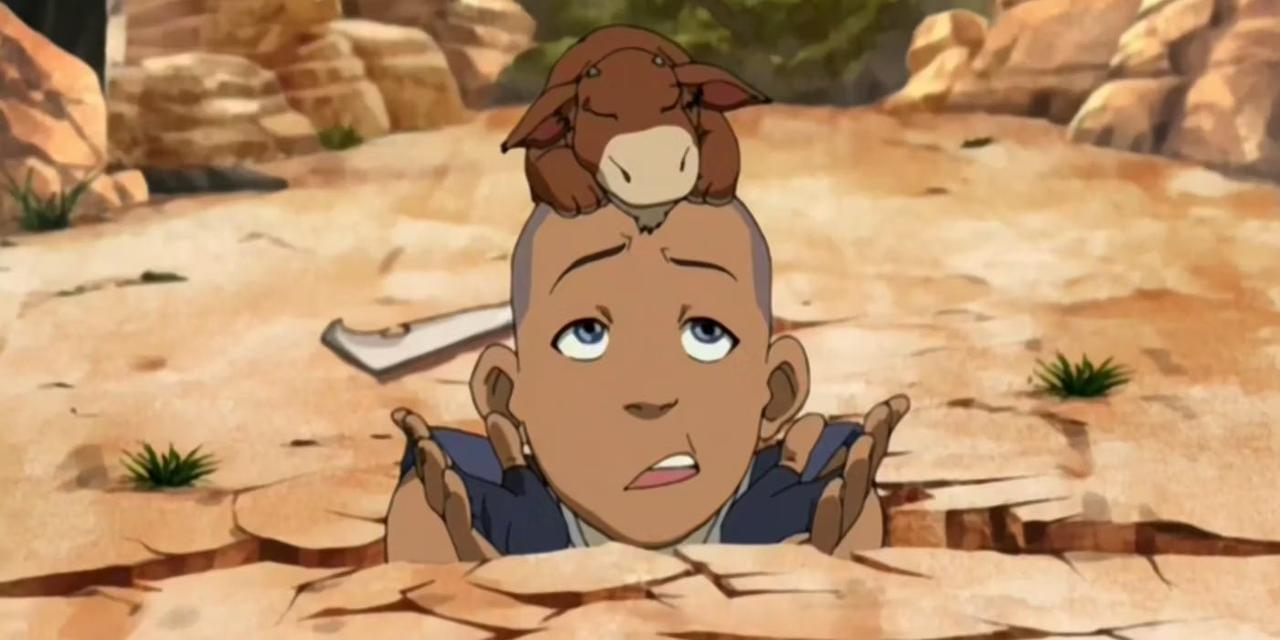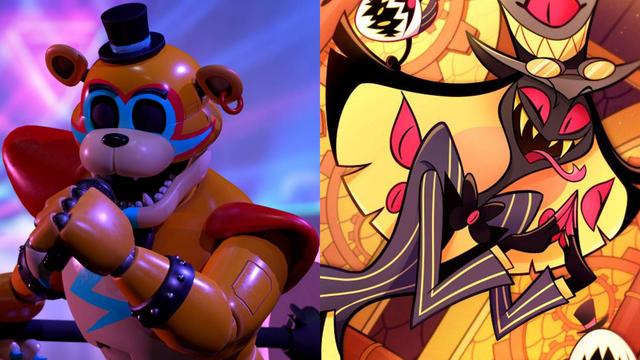If you click on a link and make a purchase we may receive a small commission. Read our editorial policy.
Sorry, Sokka Stans, but live-action Avatar’s Sokka is way better
Removing the Sokka sexism storyline from Netflix's live-action Avatar series vastly improves his story

Popverse's top stories
- After Stranger Things: The Duffer Bros. original plans for a sequel set in the 90s
- 2026 is the year of The Apothecary Diaries and we love it
- The Stranger Things ConformityGate theory exposes fandom’s obsession with “fixing” endings some don't like after the Snyder Cut
Sokka Stans, I get it. You fell in love with the world of Avatar: The Last Airbender when you first saw the animated show. Then you had to endure the movie. Let us say nothing further about that experience than this: You came into the possibility of a Netflix TV show with legit trepidation.
Then you heard some of the actors say—not the showrunners, by the way, but two of the actors—that they were going to make Sokka less sexist, and it tripped all kinds of wires. Hey Hollywood, stop messing with a good thing. This story works. Let it play out.
I see the point you’re making. Sokka has an arc. Yes, he starts out as a sexist kid, but he grows. So let him.
I really do get all that, although I feel like characterizing Sokka’s journey in Avatar as primarily about his relationship with women is off-base. That plotline is primarily addressed in the first four episodes of the animated series, culminating in Sokka meeting the all-female warriors of Kyoshi. 57 episodes follow.
But here’s the real reason I don’t think your arguments are on target: Animated TV is very, very different than live-action. Many character traits and plotlines that are standard in animated kids’ shows just don’t translate to live-action, or if they do, only to very specific kinds of live-action.

Again, I’m not talking about Sokka’s sexism. I’m thinking of his more generalized stupidity. Animated season one Sokka is often the butt of the joke, and almost always because of his own overconfidence or foolishness. He’s there with his usually outsized goofy faces to make the kids laugh.
(And let’s be clear, even if lots of adults love Avatar: The Last Airbender, its primary intended audience is clearly children. See: the fact that all of the main characters are kids.)
The dumb, overconfident friend or sibling that's meant to make you giggle is a trope in animated kids' series. But in live-action, the only place you find a character like that is in a sitcom. But live-action Avatar is not that kind of world. In fact, if you compare the live-action series to the animated, one of the key differences is that while both have that sweet and often playful endearing kid quality, the live-action version is primarily a coming of age drama, whereas the animated version, having more than twice as many episodes to play with (each of them sitcom length), has a much greater tonal fluidity.
Some episodes can be very dramatic, sad, or intense, with occasional comic relief. But then others are able to be more straightforwardly goofy. There’s an episode in which Sokka drinks from a cactus and gets high. In another he gets stuck in a crack in the ground for an entire episode.

I’m seeing Dune Part 2 on Thursday night. I’m expecting to love it. But you know what I’m not expecting? For Paul Atreides to gain a friend who keeps ripping over his own robes while he's complaining about Chani. It’s not just that it’s not that kind of film. It’s not that kind of genre.
Consider some modern live action fantasy dramas: House of the Dragon; Wheel of Time; The Witcher; Rings of Power; Sweet Tooth. They’re each different, but all have comedic moments, including characters who are sometimes foolish. But you won't find a Sokka-type in Game of Thrones or His Dark Materials. The Witcher’s Jaskier might fit the bill in season one, but that's about it.
Some have argued that live-action Sokka is more colorless or vague as a result of the changes that have been made. Personally, I wish the show had made very different choices in Sokka's relationship with the Kyoshi warrior Suki. Particularly given how much the animated version of that story is about Sokka learning to respect women, to turn the live-action version into a love story that ends with her making out with him feels, um, wrong.

But in general, by stripping away some of the elements of Sokka that we remember from the animated show, I think the writers have worked to distill his character and conflict down to their purest forms. He thinks it’s his job to protect everyone, but that's not his gift.
Framed this way, Sokka's story parallels Aang‘s and Katara’s feelings of responsibility for saving the world. It also speaks to the situation all of the children we meet in the series. Avatar is a story about kids living through a time of tyranny and struggling to figure out how they can fight back and restore everything. (Even Prince Zuko in his own wrongheaded way thinks he’s saving the world.)
And unlike Katara, Aang, or Suki and the other warriors of Kyoshi, Sokka has no powers or any real capacity as a warrior. That makes his burden in this world that is so fight-dependent particularly acute. It also gives Sokka a unique journey of his own, filled with discoveries of his own unique talents and a growing vulnerability. His connection with Princess Yue in the final episodes is a testament to how far he comes in season one (and works so much better than his relationship with Suki).
Most of these ideas come right from the animated series. The live-action Sokka is not a radically different character. He can be just as awkward and is sometimes the butt of the joke. But now his clumsiness is grounded in his struggle to find his place in the bigger story. That's not a failure on the writers' part, it's an improvement.
Netflix's Avatar: The Last Airbender ending explained
Netflix's Avatar: The Last Airbender shows that cast and creator promotion can hurt
Follow Popverse for upcoming event coverage and news
Find out how we conduct our review by reading our review policy
Let Popverse be your tour guide through the wilderness of pop culture
Sign in and let us help you find your new favorite thing.
















Comments
Want to join the discussion? Please activate your account first.
Visit Reedpop ID if you need to resend the confirmation email.